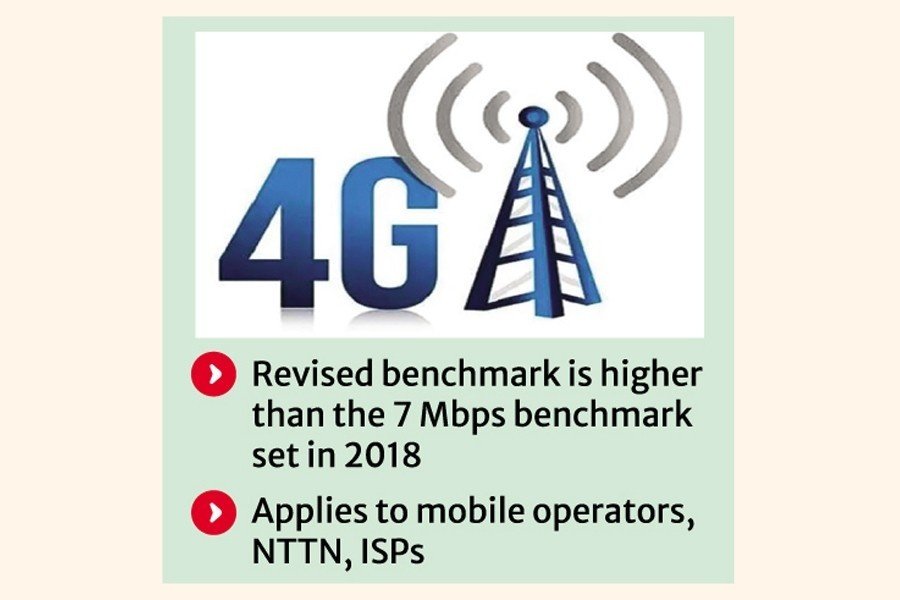The government has introduced a new Quality of Service (QoS) benchmark for Bangladesh’s telecom sector, raising the minimum 4G download speed requirement to 10 Mbps from the 7 Mbps set in 2018. The new framework, approved by the Bangladesh Telecommunication Regulatory Commission (BTRC), takes effect on September 1 and aims to improve both mobile and internet services nationwide.
While the revised speed requirement is lower than the 15 Mbps proposed earlier this year, it also sets a minimum upload speed of 2 Mbps. For the first time, the QoS framework will extend beyond mobile operators to cover National Telecommunication Transmission Network (NTTN) operators and internet service providers (ISPs).
The guidelines also impose strict rules on call quality. Call setup success rates must stay at 99% nationwide, while call drop rates on 2G networks must not exceed 1% nationally. For 4G, connection success must reach 99% nationwide and 98.5% at district level. Drive tests will ensure compliance, with operators required to achieve 98% call setup success and keep automated drops below 2%.
Customer care is also covered under the framework: at least 90% of calls to service centres must be answered within 40 seconds, and all calls within 90 seconds. Non-network complaints must be resolved within 28 days. Operators must submit monthly reports on accessibility, retainability, and network integrity, with breaches treated as offences under the 2001 Telecommunication Regulation Act.
Officials say the new framework is intended to bring greater transparency and accountability, particularly in rural and suburban areas. Faiz Ahmad Taiyeb, special assistant to the Chief Adviser, said mandatory reporting would pressure operators to improve coverage and reduce call drops.
Mobile operators, represented by AMTOB Secretary General Mohammad Zulfikar, welcomed the guidelines but noted challenges linked to taxes, customer expectations, and the balance between investment and revenue. Discussions with BTRC on final implementation are ongoing.















